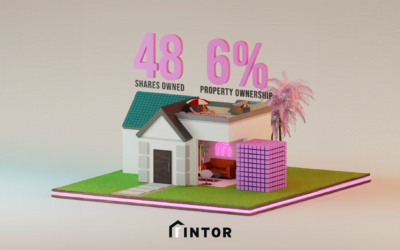Even during times of economic uncertainty, we’ve all heard—at one time or another—that it is important to start investing as soon as you possibly can. By putting just a little bit of money aside every week (or every month), you can begin substantially increasing your wealth.
Of course, if it was so easy to just “put some money aside”, you likely would have decided to do so by now. After all, when times are tight and inflation is high, a lot of people are finding themselves barely scraping by. However, you don’t have to be rich or thriving to start investing.
If all you are able to set aside is $10, you can still start making progress.
Let’s take a look at just a few of the reasons why investing sooner rather than later is, without a doubt, a very good idea.
Compounding Growth
When we say that investing just $10 can make a difference, we mean it. Because while that relatively small sum might not seem like very much today, it can turn into a lot further down the line. This is because, as long as you keep reinvesting your earnings, your investment can continue to grow.
Suppose you can average an 8% return on your investment each year. The S&P 500 Index—which is often used as a metric to measure the growth of “the economy”—has historically averaged yearly returns of about 10%, meaning that 8% is a fairly reasonable figure.
Using this rate, your $10 investment would be worth $10.80 one year from now. Big deal—what are you going to do with an additional $0.80? Buy half a pack of gum?
But let’s see how that seemingly small investment can continue to grow.
If you keep reinvesting your earnings, your wealth will continue to expand at an exponential rate. By the end of the second year, your original $10 investment will grow to $11.66. Notice that in the second year, even with the same rate of return, your investment increased by $0.86, rather than $0.80.
At this point, these numbers still probably seem small. It’s hard to get excited about your portfolio expanding by $0.06 more than it did the year before. But you’re still making progress and this progress is important.
Let’s jump ahead.
By the tenth year, your original $10 investment will have grown to be worth $21.59—still not exactly a lot of money but, hey, you have already more than doubled your investment. By the twentieth year, your original investment will have more than quadrupled and will have reached $46.61.
Now, you’re at a point where the growth of your original investment is really becoming meaningful. By the 30th year, your investment will have reached $100.62—more than TEN TIMES the original amount. In the 40th year, your investment will be worth $217.24 and by the 50th year, it’ll be worth $469.02. All still from just a single $10 investment, compounded over time.
The more you are able to invest, the more impactful these numbers will be. If you could set aside $10 every month for a year, your initial $120 investment would be worth $5,628.19 in 50 years’ time. If you could set aside $100 per month for just one year (amounting to $1,200), that investment would grow to $56,281.93 in fifty years. For a lot of people, that’s an entire year’s salary.
And if you are able to set aside $100 per month for your entire working life, the wealth you accumulate will be even greater.
By waiting to start investing, you will delay when each of these big milestones occur. With an 8% rate of return, like we were assuming above, your investment roughly doubles in value every nine years. So, waiting even just nine years to get started means you’ll end up with about half the wealth you could have if you had decided to get started earlier.
In other words, in the mind of an investor, $10 is never really just $10.
Combating Inflation
Investing is also important because it helps combat the effects of inflation. As more money comes into circulation, the power of each dollar will decrease. Historically, inflation rates have averaged around 3%, though they have been exceptionally higher over the past two years.
If inflation is at 3%, that means that something that costs $10 today can be expected to cost $10.30 one year from now. As a result, you need to be increasing your wealth by at least 3% in order to simply maintain the same spending power. Keeping your money in a savings account (which likely has an interest rate well below 1%) shouldn’t be viewed as a “neutral” decision—instead, you should recognize that decision for exactly what it is: an active choice to sit on the sidelines and knowingly lose spending power.
We aren’t suggesting that you should completely close out your savings account and dump all of your money into the stock market, which will always have some degree of risk, even if it generally increases in value over time. Building up a little bit of a safety net is usually a good idea. What we are saying is that it is important to view your finances with a holistic, long-term perspective. The best way to accumulate wealth is by putting your money to work. And this is why investing sooner rather than later will always be considered a good idea, regardless of your age or income.
Getting started as an investor is easier than ever. With Fintor you can start investing with just $500 in a matter of minutes, and start generating passive income through real estate investing while building long term wealth.



